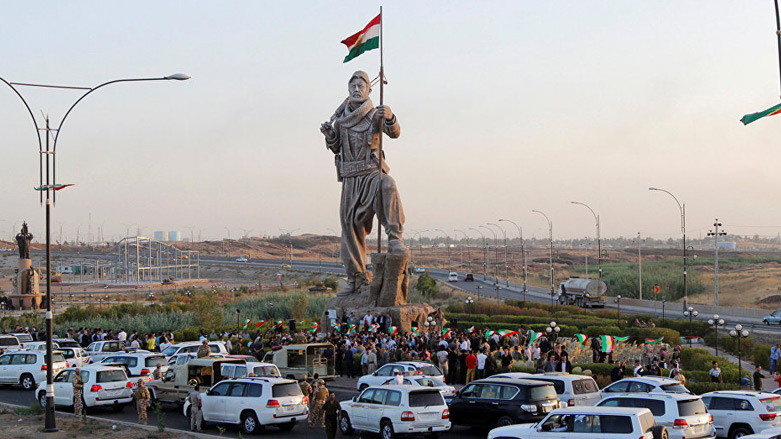Kirkuk governor to appear before Iraq Supreme Court over ousting of Kurdish mayor

ERBIL (Kurdistan 24) – The Federal Supreme Court of Iraq has summoned the Baghdad-appointed governor of Kirkuk as well as the head of Daquq District Council (DDP) for a hearing regarding the ousting of a Kurdish mayor.
On July 4, acting governor of Kirkuk, Rakan Saeed, signed a letter—based on a November DDC decision— removing from his post the then-mayor of Daquq, who is also a member of the Patriotic Union of Kurdistan (PUK), Amir Khwakaram.
“After the events of Oct. 16, there is a new political and administrative modus operandi in Kirkuk, and that is to remove Kurds from official posts and to the posts to Arabs and Turkmen,” Khwakaram began, as he spoke to Kurdistan 24 on Sunday.
Describing the case against him as “illegal,” the former mayor explained he had launched an appeal with Iraq’s Federal Supreme Court (FSC) in July.
A month since filing the appeal, “the Federal Court [FSC] has responded and warned the [acting] governor of Kirkuk and head of the District Council of Daquq they would have to appear before the court in October,” said Khwakaram.

In July, speaking to Kurdistan 24, the ousted mayor expressed his firm stance on the issue, saying “I will not give up on this post even if they threaten to cut my head from the body.”
“This is another Arabization campaign in the area, and I will appeal against this decision with the Federal [Supreme] Court of Iraq. We will not stand silent regarding this case,” Khwakaram concluded in the previous interview.
Mid-August, the Iraqi Oil Ministry ordered a ban on the use of Kurdish terms in official documents for ‘posing a threat’ to the Arabic language, vowing to take legal action against employees who violate the decision.
Iraqi forces and Iranian-backed Hashd al-Shaabi militias on Oct. 16 attacked and took over the province of Kirkuk in response to the Kurdistan Region’s independence referendum, held in September throughout the region and in areas disputed by Baghdad and Erbil.
Kurdish lawmakers from Kirkuk, the most prominent of the disputed territories, have previously told Kurdistan 24 that, ever since then, the province has witnessed a campaign of “forceful demographic change” that aims to weaken the Kurds.
Though discord between members of different ethnic groups is an obvious factor, it should be noted that rivalries between parties which fall along ethnic lines make the issue in large part one of local and national political dominance as well.
Editing by Nadia Riva
